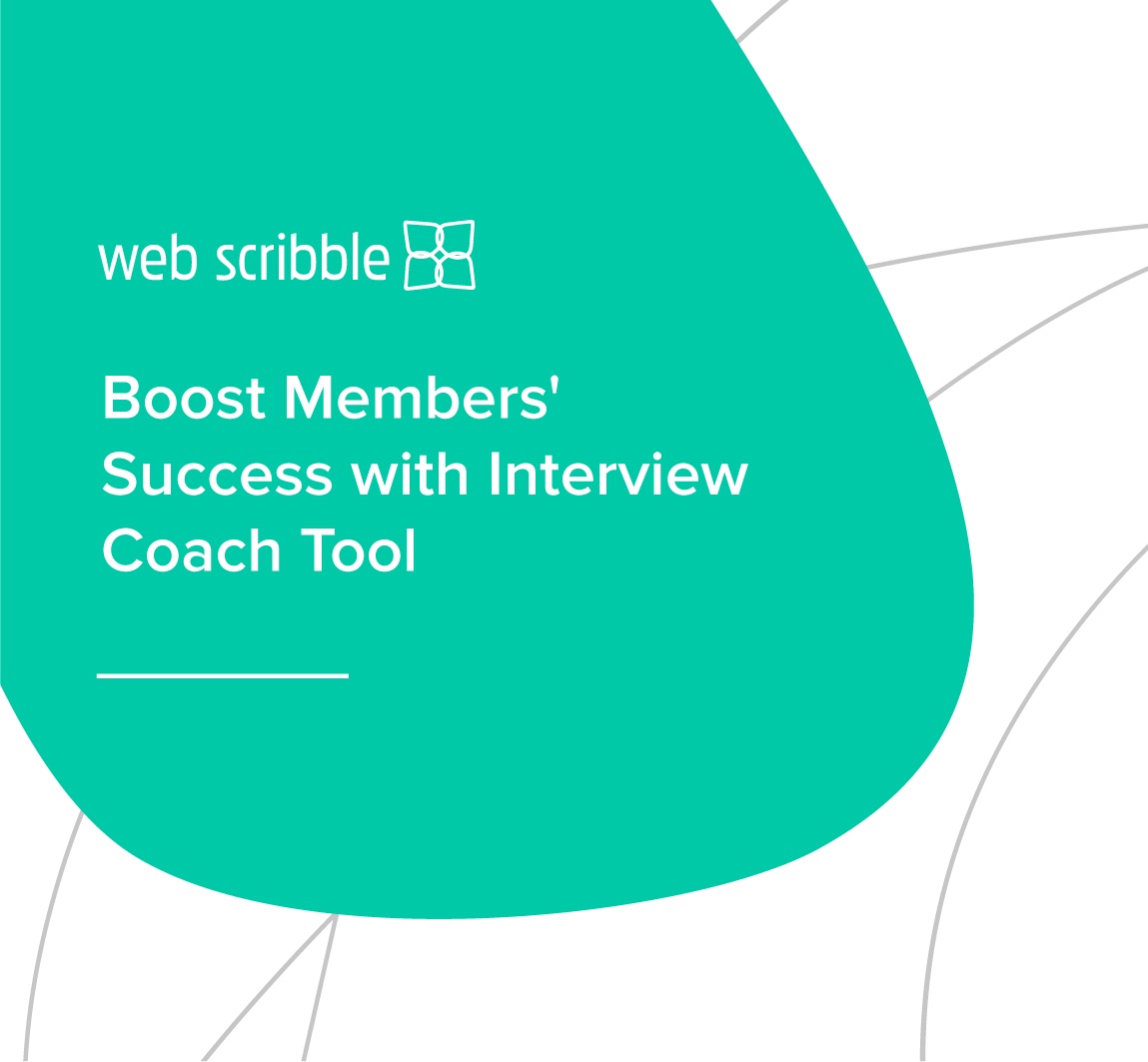One of your most important roles as a professional association is helping your members advance their careers. How associations deliver on this may vary, but your members expect a level of assistance that makes the cost of membership worthwhile. This is why many associations implement a job board for their members. Job boards are a critical draw for many members, especially Millennial members. If your association has access to employment opportunities that are pre-vetted, highly tailored to the industry, you offer an incredibly unique value to your members.
On the other side of the coin, you also become a useful resource for employers who are seeking talent. Your members generally all fall within one industry or one overarching category, which means that advertising relevant employment opportunities to this demographic is more likely to yield better results for the companies that are looking. So a job board can be a fantastic resource for job seeker and talent seeker alike. But how do you harness this asset to benefit your association too?
Monetizing your job board
When done correctly, your job board can become a great non-dues revenue stream. But again, this monetization must be strategic so as to ensure that your board is beneficial for all players. First off, you don’t want to charge your members a fee to use the job search. They already pay member dues, and your association’s very core is to help members advance their careers. Job boards should be a perk of membership – not a fee-driven add-on. Rather, the cost should fall onto the talent seekers -- the employers. They need pre-qualified, highly-skilled candidates, and they need a viable pool of them.
Most corporate positions generate on average 250 applicants. Employers can easily become overwhelmed with unqualified candidates after posting on a major job board. By posting to your association, employers immediately reduce the time and cost of their search, as they know they’re only posting to potential candidates that are interested and qualified. Thus, they don’t have to waste time perusing resume upon resume from candidates that don’t have the job experience or education required. Instead, employers receive a lower volume of more relevant resumes that are far more likely to turn into a long-time employee.
Talent seekers incur posting fees willingly, because they know that the benefits will outweigh the cost in the long run. Your job board can follow this precedent by setting up a fee schedule for the employers who wish to post jobs to your job board, and in so doing, you create a steady and lucrative revenue stream to help your association continue to provide useful benefits for members and employers alike.
How should my fees work?
There are a number of ways to approach a fees and how to charge in this context. Some associations may wish to have a monthly subscriber fee, so that employers can sign up and pay a flat fee to post as many jobs as they like. Other associations may prefer a “per posting” fee, where employers don’t pay a subscription, but pay a fee for each job they post. You may even implement a combination of these, where users can choose to do a monthly payment or a per-posting option. Your fee plan could even include “upgrade” components, for example, a featured-listing fee. This would give employers the option of paying a small fee to have their listings be “featured” in a prominent place and thus seen by more potential candidates. You can also offer even more add-ons like social media promotion or cross-posting to other job boards. The convenience and features you offer can all be broken down and monetized to help you continue to run the most efficient and helpful job board possible.
How do I start my job board?
When it comes to the actual board itself, most associations aren’t equipped to build their own from scratch. Unless you have an in-house development team, creating your own job platform is an incredibly difficult, and developing one that is intuitive and easy to use is even more difficult. Thankfully, you don’t have to reinvent the wheel. There are plenty of pre-made job board software that can simply be installed and customized to suit your association’s unique requirements. However, you need to ensure that it has certain features, such as the ones listed below:
Advanced search options. Your software should allow members to quickly scan through to find job opportunities that are most relevant to them. Providing advanced search options that filter out opportunities by pay scale, job category, region, or other criteria ensure that seekers only see what they need.
Varied alert system. Let seekers and employers know when you find a potential match! Make sure your software comes equipped with an alert system that notifies each party whenever something comes up that matches their specifics.
A variety of screening options. Some software allow multiple screening or pre-screening methods so that the employers can weed out unqualified candidates automatically. This streamlines the process even further, allowing employers to drill down to only the best-fitting potential employees.
Built-in SEO. Your job board isn’t going to attract employers or new members if it can’t be found! Select a software that has SEO principles already woven into the platform, so that you don’t have to start from scratch when it comes to organic search marketing.
Mobile-optimized. Many job seekers search for opportunities from their phones, when they’re on the go or just want to quickly follow up on a lead. In a recent study done by Appcast, a recruitment advertising technology and services company, mobile applications made up roughly 61% of all applications in the recruiting technology firm's analysis. Make sure your job board is mobile-friendly to accommodate this demographic.
These features are a good basic guideline for what you want to see in your job board software. With these principles in place, you’ll have the start of a well-managed and professional board that draws employers and employees from all corners.
Promoting your job board
Now, once your board is set up, you still have to do a little marketing work to get it circulating. Obviously, one of your first places to advertise should be social media. Through organic and paid social ads, you can reach an incredibly diverse audience through social media platforms, and you can even set up your ads to reach certain target demographics. Run ads that are aimed both at employers who may wish to subscribe to post jobs, and at potential members who would see your job board and other career benefits as incentives to join your organization.
Also, think carefully about which platforms you post your social ads on. Remember that LinkedIn is a professional network that’s tailored around people who are seeking to advance their careers. This can be a very useful social outlet for reaching those individuals who are looking for new opportunities themselves. Facebook is the mainstay. It has been for years, and arguably, it will be for years to come. Be sure you develop ads for this channel as well, and use its various targeting tools to help you focus your ads on the right groups. Social media is only one facet of your promotion strategy, however. Your marketing should extend through other means as well, for example, by making use of content.
Blog about your job board and its various features, then share these posts in your emails and social media posts. You could even partner up with one of your sponsors or other affiliates and ask to guest post for their blogs, or ask them to blog about you. By making use of your current network, you spread your content further and build your credibility and SEO strategy.
A robust job board for a healthier association
In many ways, your job board can become a key component of your member-building and non-dues revenue-building strategies. Your job board will not only be a benefit, but a draw that keeps revenue and new members filtering in. With a well-crafted job board and consistent promotion strategies in place, your association can become a leader and a long-lasting benefactor for those within your industry.




